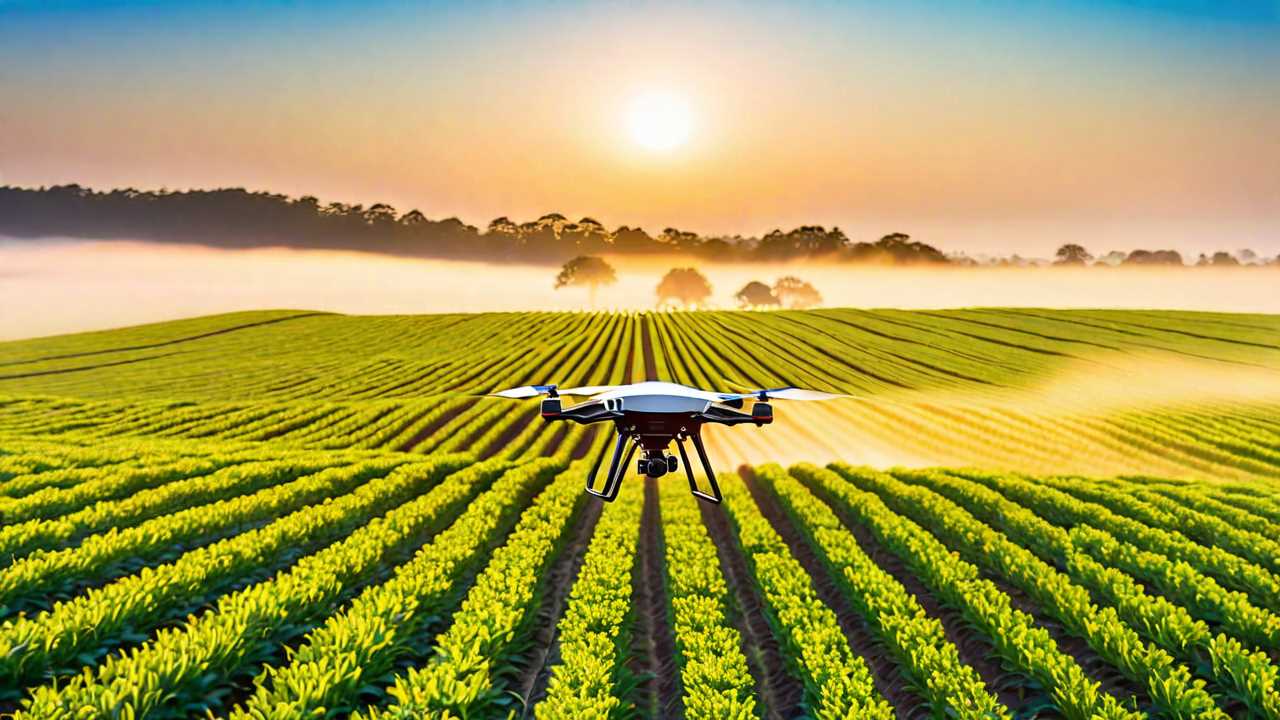Technology
How are Drones Being Used in Agriculture for Better Productivity?

In the vast and dynamic field of agriculture, technology plays a pivotal role in driving efficiency and enhancing productivity. Among the most groundbreaking advancements, the use of drones has emerged as a transformative tool for farmers worldwide. Drones, or unmanned aerial vehicles (UAVs), are now at the forefront of modern agricultural practices, offering innovative solutions to age-old farming challenges. This article delves into the multifaceted applications of drones in agriculture, highlighting how they contribute to precision farming, crop monitoring, aerial spraying, soil health analysis, yield optimization, and irrigation management.
Precision Farming: A New Era of Agriculture
Precision farming represents a shift towards more accurate and controlled agricultural operations. Drones play a crucial role in this paradigm, offering data and insights that were previously unattainable. Equipped with high-resolution cameras and sensors, drones can collect detailed information about the condition of crops, variations in soil types, and even pest infestations. This data enables farmers to make informed decisions, applying resources such as fertilizers and pesticides only where needed, thus reducing waste and enhancing the sustainability of farming practices.
Crop Monitoring: Keeping a Watchful Eye from Above
Monitoring vast expanses of farmland can be labor-intensive and time-consuming. Drones offer a practical and efficient solution to this challenge. By flying over fields, drones can quickly and accurately gather information on crop health, growth stages, and identify areas that require attention. This aerial perspective not only saves time but also helps in detecting problems early, allowing for timely interventions that can prevent crop failures and boost productivity.
Aerial Spraying: Precision Application of Inputs
The application of pesticides, herbicides, and fertilizers is essential for crop health and yield. However, traditional methods can be imprecise, leading to overuse of chemicals, environmental damage, and increased costs. Drones equipped for aerial spraying bring a level of precision and efficiency to this task. They can target specific areas with the exact amount of input required, minimizing runoff and reducing the environmental footprint of farming operations.
Soil Health Analysis: The Foundation of Farming
Soil health is a critical component of successful agriculture. Drones equipped with specialized sensors can analyze soil conditions, including moisture levels, composition, and potential deficiencies. This information is vital for making decisions about irrigation, fertilization, and crop rotation, which can lead to improved soil health over time and increased crop yields.
Yield Optimization: Maximizing Agricultural Output
One of the primary goals of utilizing drones in agriculture is to optimize crop yields. By providing detailed data on crop health, soil conditions, and environmental factors, drones enable farmers to tailor their practices to the specific needs of their crops. This targeted approach can lead to significant improvements in yield, ensuring that farmers can produce the maximum amount of food from their available land.
Irrigation Management: Efficient Water Use
Water is a precious resource in agriculture, and its efficient use is essential for sustainability. Drones can play a key role in irrigation management by mapping out the moisture levels across different parts of a field. This data allows for the precise application of water, reducing waste and ensuring that crops receive the right amount of hydration at the right time.
In conclusion, the integration of drones into agricultural practices offers a host of benefits that can lead to better productivity, sustainability, and efficiency. From precision farming to yield optimization, the capabilities of drones are transforming the agricultural landscape. As technology continues to advance, the potential applications of drones in agriculture will undoubtedly expand, opening new horizons for farmers around the world. By embracing these innovative tools, the agricultural sector can continue to meet the growing demands for food in an environmentally responsible and efficient manner.

Hey there! I’m William Cooper, your go-to guy for all things travel at iMagazineDaily. I’m 39, living the dream in Oshkosh, WI, and I can’t get enough of exploring every corner of this amazing world. I’ve got this awesome gig where I blog about my travel escapades, and let me tell you, it’s never a dull moment! When I’m not busy typing away or editing some cool content, I’m out there in the city, living it up and tasting every crazy delicious thing I can find. Join me on this wild ride of adventures and stories, right here at iMagazineDaily. Trust me, it’s going to be a blast! 🌍✈️🍴







